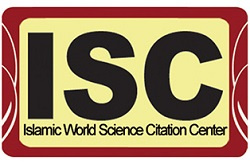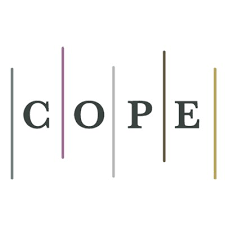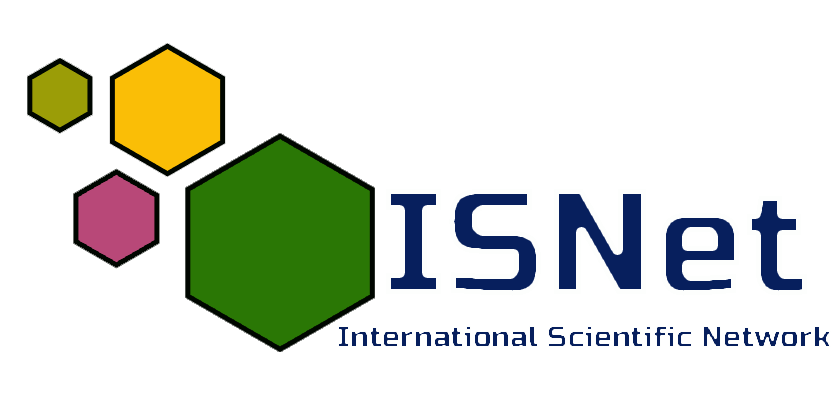Big Data IoT-based Agile-Lean Logistic in Pharmaceutical Industries
DOI:
https://doi.org/10.52547/ijimes.2.3.70DOR:
https://dorl.net/dor/20.1001.1.27832678.2022.2.3.5.6Keywords:
Smart Logistics, IoT-Based Logistics, Big Data Analysis, Agile-Lean LogisticsAbstract
Purpose: In today’s world, with the presence of huge volumes of data, although organizations have faced many problems, using big data analysis has been able to significantly improve their efficiency and integrate information in the supply chain through the topic of computing. Cloud and big data achieve coordination between components and improve communication. On the other hand, Internet of Things (IoT) technology tools are one of the most important sources of big data production, and understanding and correct use of this data and their timely analysis using big data analysis techniques and technologies based on artificial intelligence can be effective steps to improve supply chain processes. Also, the use of these technologies can play an important role in process agility and, as a result, supply chain resilience.
Methodology: In this study, the dimensions and key components of the use of large data obtained from the Internet of Things (IoT) in an industry's supply chain are investigated as a case study. Finally, a model for implementing an agile and lean supply chain based on IoT data analysis to improve the supply chain performance of these industries during emergency drug distribution during critical conditions is presented.
Findings: This study shows that these technologies can be used as a powerful enabler, especially in the distribution of fast-acting pharmaceutical products.
Originality/Value: In this paper a model for implementing an agile and lean supply chain based on IoT data analysis to improve the supply chain performance of these industries during emergency drug distribution during critical conditions is presented.
Downloads
References
Nahr, J. G., Nozari, H., & Sadeghi, M. E. (2021). Green supply chain based on artificial intelligence of things (AIoT). International Journal of Innovation in Management, Economics and Social Sciences, 1(2), 56-63.
Nozari, H., Fallah, M., Kazemipoor, H., & Najafi, S. E. (2021). Big data analysis of IoT-based supply chain management considering FMCG industries. Бизнес-информатика, 15(1 (eng)), 78-96.
Szmelter-Jarosz, A., Ghahremani-Nahr, J., & Nozari, H. (2021). A neutrosophic fuzzy optimisation model for optimal sustainable closed-loop supply chain network during COVID-19. Journal of Risk and Financial Management, 14(11), 519.
Nozari, H., & Szmelter, A. (Eds.). (2018). Global supply chains in the pharmaceutical industry. IGI Global.
Nozari, H., Szmelter-Jarosz, A., & Ghahremani-Nahr, J. (2022). Analysis of the Challenges of Artificial Intelligence of Things (AIoT) for the Smart Supply Chain (Case Study: FMCG Industries). Sensors, 22(8), 2931.
Nozari, H., Ghahremani-Nahr, J., & Szmelter-Jarosz, A. (2022). A multi-stage stochastic inventory management model for transport companies including several different transport modes. International Journal of Management Science and Engineering Management, 1-11.
Ghahremani-Nahr, J., Najafi, S. E., & Nozari, H. (2022). A combined transportation model for the fruit and vegetable supply chain network. Journal of Optimization in Industrial Engineering.
Najafi, S. E., Nozari, H., & Edalatpanah, S. A. (2022). Investigating the Key Parameters Affecting Sustainable IoT-Based Marketing. In Computational Intelligence Methodologies Applied to Sustainable Development Goals (pp. 51-61). Springer, Cham.
Albqowr, A., Alsharairi, M., & Alsoussi, A. (2022). Big data analytics in supply chain management: a systematic literature review. VINE Journal of Information and Knowledge Management Systems.
Song, A., Yang, X., Ni, L., Liu, C., Yao, Y., & Pan, L. (2022). Optimization Analysis of the Emergency Logistics Identification Method Based on the Deep Learning Model under the Background of Big Data. Wireless Communications and Mobile Computing, 2022.
Mo, H., & Deng, C. (2022, May). Real-Time Platform Design to Improve the Efficiency of Hainan Port Logistics Operation Under the Background of Big Data. In 2022 6th International Conference on Intelligent Computing and Control Systems (ICICCS) (pp. 923-926). IEEE.
Tran-Dang, H., Krommenacker, N., Charpentier, P., & Kim, D. S. (2022). The Internet of Things for logistics: Perspectives, application review, and challenges. IETE Technical Review, 39(1), 93-121.
Wu, W., Shen, L., Zhao, Z., Li, M., & Huang, G. Q. (2022). Industrial IoT and long short-term memory network enabled genetic indoor tracking for factory logistics. IEEE Transactions on Industrial Informatics.
Aydınocak, E. U. (2022). Internet of Things (IoT) in Marketing Logistics. In Logistics 4.0 and Future of Supply Chains (pp. 153-169). Springer, Singapore.
Katoch, R. (2022). IoT research in supply chain management and logistics: A bibliometric analysis using vosviewer software. Materials Today: Proceedings, 56, 2505-2515.
Chowdhary, C. L. (2022). Agile Supply Chain: Framework for Digitization. In Innovative Supply Chain Management via Digitalization and Artificial Intelligence (pp. 73-85). Springer, Singapore.
Liu, C., & Ma, T. (2022). Green Logistics Management and Supply Chain System Construction Based on Internet of Things Technology. Sustainable Computing: Informatics and Systems, 100773.
Kian, R. (2022). Investigation of IoT applications in supply chain management with fuzzy hierarchical analysis. Journal of Data Analytics, 1(1), 8-15.
Iskanius, P., Haapasalo, H., & Alaruikka, A. M. (2004, August). Shifting Operational Mode from Mass Production towards Project Oriented Business in Steel Product Industry. In Proceedings of Project Research Conference–IRNOP VI, Åbo Akademi University, Turku, Finland (pp. 323-339).
Pawar, P. V., & Paluri, R. A. (2022). Big Data Analytics in Logistics and Supply Chain Management: A Review of Literature. Vision, 09722629221091655.
Upadhyay, P., Matharu, G., & Garg, N. (2015). Modeling agility in Internet of Things (IoT) architecture. In Information Systems Design and Intelligent Applications (pp. 779-786). Springer, New Delhi.
Tripathi, V., Chattopadhyaya, S., Mukhopadhyay, A. K., Saraswat, S., Sharma, S., Li, C., & Rajkumar, S. (2022). Development of a Data-Driven Decision-Making System Using Lean and Smart Manufacturing Concept in Industry 4.0: A Case Study. Mathematical Problems in Engineering, 2022.
Nozari, H., Tavakkoli-Moghaddam, R., & Gharemani-Nahr, J. (2022). A neutrosophic fuzzy programming method to solve a multi-depot vehicle routing model under uncertainty during the covid-19 pandemic. International Journal of Engineering, 35(2), 360-371.
Published
How to Cite
Issue
Section
License
Copyright (c) 2022 Alireza Aliahmadi, Hamed Nozari, Javid Ghahremani-Nahr

This work is licensed under a Creative Commons Attribution 4.0 International License.












